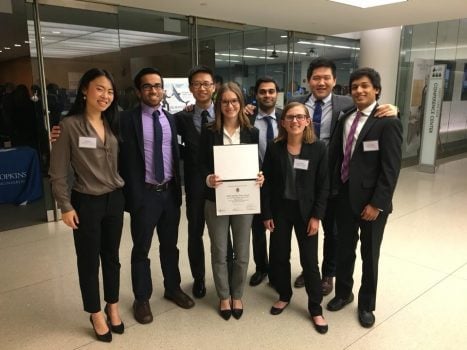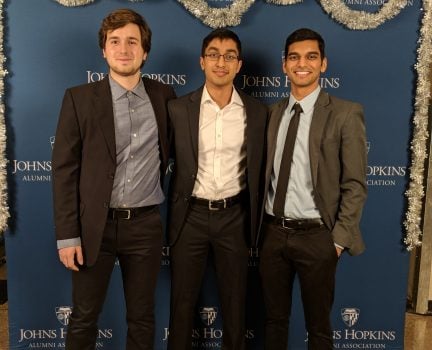FastForward U—the student entrepreneurship initiative within Johns Hopkins Technology Ventures—recently selected five student startups to receive funding this year through the Ralph S. O’Connor Undergraduate Entrepreneurship Fund.
Founded by Johns Hopkins alum Ralph O’Connor and his wife, Becky, the O’Connor Fund program awards each team a $5,000 grant with the opportunity to earn $5,000 more by reaching certain milestones.
Among the list of startups are two teams with students from the Johns Hopkins Department of Biomedical Engineering: Treyetech and OtoGlobal Health.
Treyetech was formed by a group of undergraduate students in the Design Teams course offered through the Center for Bioengineering Innovation & Design. The concept is a business-to-business venture that strives to improve the standard of care for patients with impaired vision by enhancing the workflow for corneal transplant procedures.
The team has designed a device to help transport and implant tissue grafts during partial corneal transplants, a procedure that replaces a thin sheet of tissue in the innermost layer of the front of the eye.
During surgery, corneal grafts tend to roll up, making it extremely difficult for surgeons to implant the delicate tissue without damaging it. Treyetech’s method uses a proprietary device and a unique folding configuration to package corneal tissue so that it naturally pops open and into place once implanted into a patient’s eye.
“We are truly excited to have received the O’Connor grant this year,” says team leader Stephanie Cai. “The funding will help us push forward with commercialization in 2018.”


